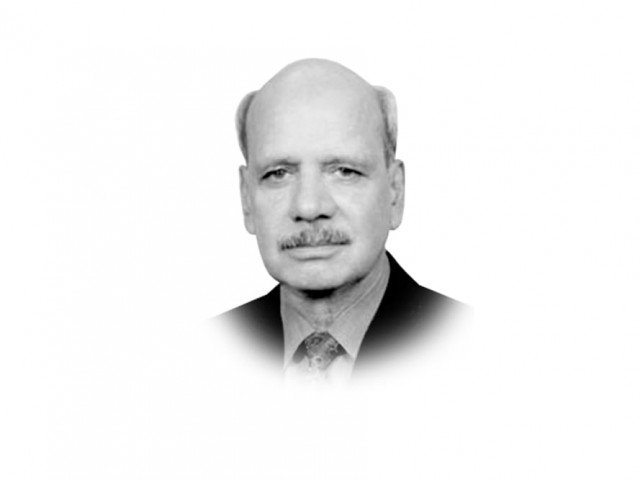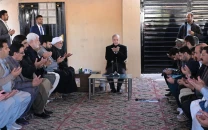Afghanistan after Rabbani
Despite the lack of evidence in Rabbani's murder, Western analysts, commentators term it as Haqqani handiwork.

Afghanistan after Rabbani
Asking Ustad (the teacher) Rabbabni, a Tajik, to head the High Peace Council to start a peace process with the Afghan resistance was wise. It was a signal to the predominantly Pashtun militias that the non-Pashtun North was also on board. Indeed, not everyone in the north, or in the south, was. Some, like Dr Abdullah Abdullah, a former Foreign Minister, believed that talking to the Taliban was futile. Some others stood to benefit from the status quo. Though possible, it is unlikely that anyone of them was behind the assassination.
The Taliban appear to be the main suspect and may have had some motive as well. Besides being old adversaries — they removed the Rabbani led government in 1995 — some of them feared that Ustad’s efforts to reach out to them were aimed to split the movement. If it was, therefore, a Taliban sponsored act, it was extremely foolish. Since only a broad-based agreement ensures peace and stability in Afghanistan, eliminating Rabbani who once led the largest multi-ethnic party in the country, makes reconciliation amongst diverse Afghan groups even more difficult than it normally would be.
Long before the US conceded that the Taliban had to be engaged in a dialogue, the late president had publicly opposed the use of force against them. Yet another factor that made him an ideal interlocutor for the Taliban was his insistence that there could be no peace in Afghanistan till the occupation was vacated. His opposition to the ‘strategic agreement’, reportedly being negotiated between Washington and Kabul to grant the former, the right to maintain operational basis beyond 2014, was well known.
That places America on the ‘whodunit’ list too. Admittedly, there is no circumstantial evidence that there was a hidden Yankee hand. Their desire to pin the crime on the latest emerging superpower, the Haqqani network, however, was all too evident. Almost all Western analysts and commentators, after conceding that the evidence was lacking, could not help blurting out that “it looked like” a Haqqani handiwork. (Reminds me of a pre-Mumbai terrorist act in India, when many experts from the other side warned against jumping to conclusion, but then suggested that it was the “Lashkar” as in the LeT.)
For most of us, this nitpicking is superfluous. We already know the perpetrators: the ones we hate the most. What must, however, concern us deeply are the likely developments post Rabbani. That it would take quite a while before the intra-Afghan dialogue could resume, assuming of course, that it had started in the first place, is no big deal. Afghans take their time. It is the argument that Afghanistan was best served by another Durand Line — this time along the Hindukush — which we now must take more seriously.
Our main argument against a possible North-South divide in Afghanistan — besides none of its neighbours relish the prospect — has always been that all Afghan factions were passionately nationalist. One is not sure if such noble sentiments survive all odds. The late colonel Yahyah Effendi, an accomplished historian in his own right and whose views I value more than the current cartographic strategists, had started smelling a rat more than a decade ago.
The Soviets toyed with the idea when their withdrawal was imminent. Mujahideen dissuaded them. If the Americans, in view of their bases located north of a convenient divide, were also thinking about it, I wonder if we in the region are giving some thought on how to best scuttle this design.
Published in The Express Tribune, September 27th, 2011.



















COMMENTS
Comments are moderated and generally will be posted if they are on-topic and not abusive.
For more information, please see our Comments FAQ